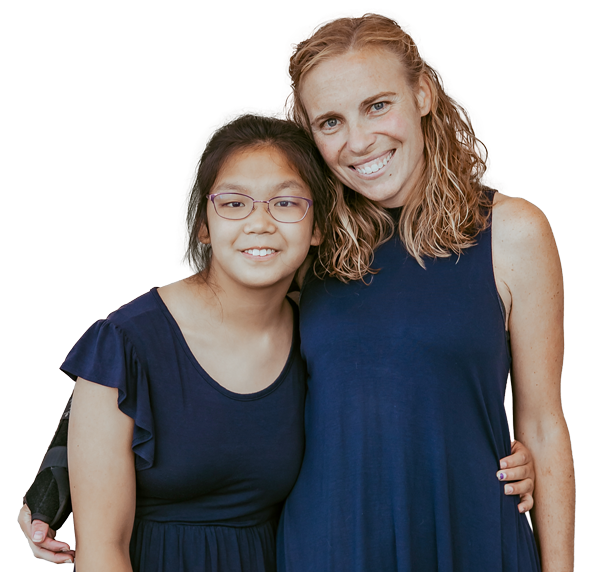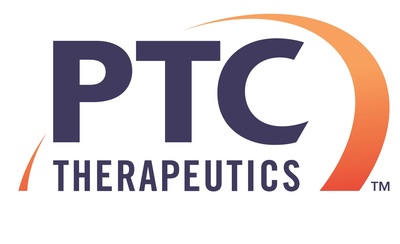Release Details
Living with PKU, United States

PTC Therapeutics Announces New Analyses that Support the Potential Benefit of Ataluren in Preserving Lung Function in Non-Ambulatory Nonsense Mutation Duchenne Muscular Dystrophy Patients

"We are excited to share the first results available from our long-term DMD extension study in non-ambulatory patients," said
DMD patients experience progressive dysfunction of respiratory muscles, in particular the diaphragm, leading to respiratory failure which is the primary cause of death. Pulmonary function in DMD patients has historically been assessed using forced vital capacity (FVC), a measure of lung function that correlates with disease progression and mortality.i FVC tends to peak at an earlier age in DMD patients and then decline more rapidly than in healthy individuals.
The analysis of ataluren's impact on preservation of lung function is based on FVC, a marker of respiratory insufficiency which progresses with age. The results presented are from a preliminary assessment of pulmonary function in non-ambulatory patients in Study 019 (n = 53). The data were compared with an external control group of patients not receiving ataluren ("untreated") in a long-term DMD natural history study performed by the
In order to apply a linear regression model to the analysis, FVC data were log-transformed to achieve a normal distribution. A piecewise linear regression model, which accounts for peak lung function, was utilized. In the untreated natural history cohort, FVC peaked at a mean age of 12.5 years and then declined thereafter. In comparison, ataluren-treated patients achieved peak FVC at a mean age of 16.5 years, a difference of 4 years over the untreated patients. In addition, absolute FVC was 13.8% higher in ataluren-treated patients compared with untreated patients (nominal p = 0.005), which suggests a slower progression of loss in lung function in ataluren-treated patients.
These historically controlled, matched analyses provide insight into the potential pulmonary benefits realized by non-ambulatory ataluren-treated patients versus untreated DMD patients.
"The potential benefit of ataluren in preservation of lung function highlights the long-term benefits of a protein restoration treatment," stated Professor Francesco Muntoni, M.D., Director of the Dubowitz Neuromuscular Centre,
About Duchenne Muscular Dystrophy
Primarily affecting males, Duchenne muscular dystrophy (DMD) is a progressive muscle disorder caused by the lack of functional dystrophin protein. Dystrophin is critical to the structural stability of skeletal, diaphragm, and heart muscles. Patients with DMD lose the ability to walk in their early teens and experience life-threatening lung and heart complications in their late teens and twenties. It is estimated that nonsense mutations account for approximately 13% of DMD cases.
About Ataluren
Ataluren, discovered and developed by
About
PTC is a global biopharmaceutical company focused on the discovery, development and commercialization of orally administered, proprietary small molecule drugs targeting an area of RNA biology we refer to as post-transcriptional control. Post-transcriptional control processes are the regulatory events that occur in cells during and after a messenger RNA, or mRNA, molecule is copied from DNA through the transcription process. PTC's internally discovered pipeline addresses multiple therapeutic areas, including rare disorders and oncology. PTC has discovered all of its compounds currently under development using its proprietary technologies. PTC plans to continue to develop these compounds both on its own and through selective collaboration arrangements with leading pharmaceutical and biotechnology companies. For more information on the company, please visit our website www.ptcbio.com.
For More Information:
Investors:
+ 1 (908) 912-9327
ehill@ptcbio.com
Media:
+1 (908) 912-9167
jbaj@ptcbio.com
Forward Looking Statements:
All statements, other than those of historical fact, contained in this press release, are forward-looking statements, including statements regarding: the future expectations, plans and prospects for PTC; PTC's preliminary analyses of data, including data from Study 019; the clinical utility and potential advantages of ataluren (Translarna), including its potential benefit in preserving lung function in non-ambulatory nmDMD patients; and the objectives of management. Other forward-looking statements may be identified by the words "potential," "preliminary," "implies," "plan," "anticipate," "believe," "estimate," "expect," "intend," "may," "possible," "will," "would," "could," "should," "continue," and similar expressions.
PTC's actual results, performance or achievements could differ materially from those expressed or implied by forward-looking statements it makes as a result of a variety of risks and uncertainties, including those related to: the outcome of final analyses of the Study 019 data, which may vary from PTC's preliminary analyses and identify important information not available at the time of this press release; the initiation, conduct and availability of data from PTC's ongoing or future clinical trials and studies and the outcome of such trials and studies; the eligible nmDMD patient base; PTC's scientific approach and general development progress; and the factors discussed in the "Risk Factors" section of PTC's most recent Quarterly Report on Form 10-Q as well as any updates to these risk factors filed from time to time in PTC's other filings with the
As with any pharmaceutical under development, there are significant risks in the development, regulatory approval and commercialization of new products. There are no guarantees that ataluren will receive full regulatory approval in any territory or maintain its current marketing authorization in the EEA, or prove to be commercially successful in general, or specifically with respect to the treatment of nmDMD.
The forward-looking statements contained herein represent PTC's views only as of the date of this press release and PTC does not undertake or plan to update or revise any such forward-looking statements to reflect actual results or changes in plans, prospects, assumptions, estimates or projections, or other circumstances occurring after the date of this press release except as required by law.
i Mayer, OH et al - Characterization of Pulmonary Function in Duchenne Muscular Dystrophy Pulmonol. 2015;50:487-494. And Philips, M et al - Changes in Spirometry Over Time as a Prognostic Marker in Patients with Duchenne Muscular Dystrophy Am J Respir Crit Care Med Vol 164. pp 2191-2194, 2001
Logo - http://photos.prnewswire.com/prnh/20010919/PTCLOGO
To view the original version on PR Newswire, visit:http://www.prnewswire.com/news-releases/ptc-therapeutics-announces-new-analyses-that-support-the-potential-benefit-of-ataluren-in-preserving-lung-function-in-non-ambulatory-nonsense-mutation-duchenne-muscular-dystrophy-patients-300340465.html
SOURCE
News Provided by Acquire Media